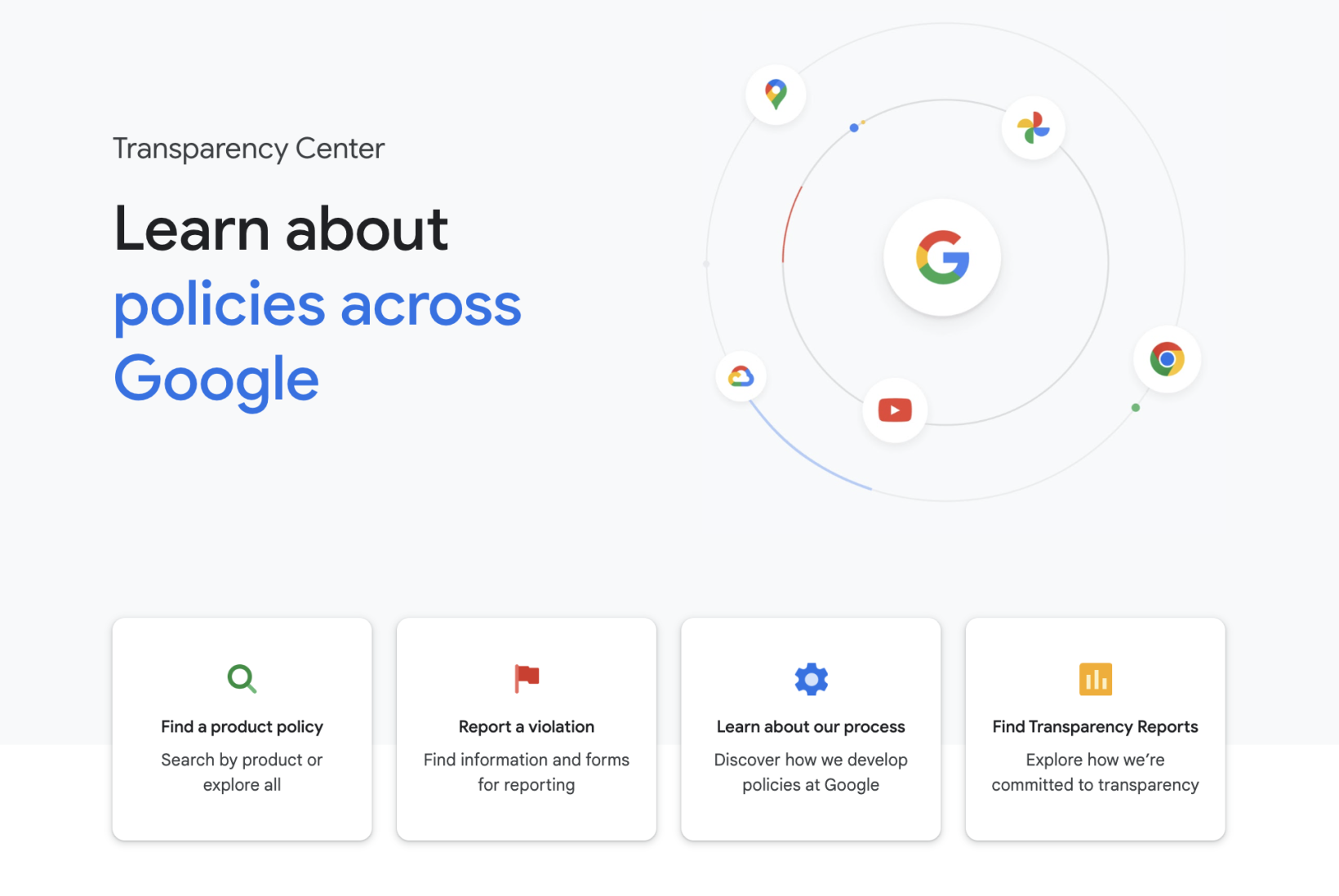
Google will provide more information on targeted advertising, content decisions, and product policies as it strives to comply with the EU’s new content moderation rules, the tech giant said on Thursday.
Known as the Digital Services Act (DSA), the bloc’s landmark legislation kicks in today for 19 big tech companies. It sets multiple far-reaching measures designed to empower and protect users online against disinformation, harmful or illegal content, and the violation of privacy and free speech.
“We will be expanding the Ads Transparency Center, a global searchable repository of advertisers across all our platforms, to meet specific DSA provisions and providing additional information on targeting for ads served in the European Union,” Google’s Laurie Richardson, VP Trust and Safety, and Jennifer Flannery O’Connor, VP Product Management YouTube, wrote. The center, which was launched in March, allows users to learn more about the ads they see.
Google is also broadening the scope of its transparency reports to include information about content moderation decisions across a larger number of their services, such as Google Play, Search, and Maps.
In addition, the company is rolling out another Transparency Center, where users can access information about product policies, find reporting and appeal tools, and get hold of its transparency reports.

Meanwhile, the tech giant is increasing data access for researchers seeking to “understand more about how Google Search, YouTube, Google Maps, Google Play, and Shopping work in practice” and conducting research “related to understanding systemic content risks in the EU.”
Google is among the numerous big tech companies announcing changes to adhere to the DSA’s rules. Facebook and Instagram have launched non-personalised (aka chronological) feeds, while Amazon has opened a new channel for flagging illegal or counterfeit products.
Get the TNW newsletter
Get the most important tech news in your inbox each week.





